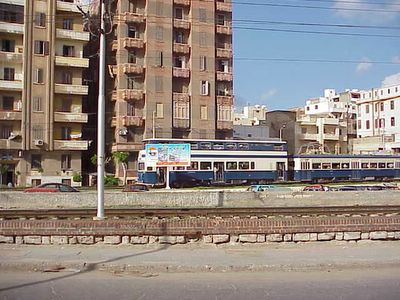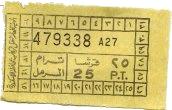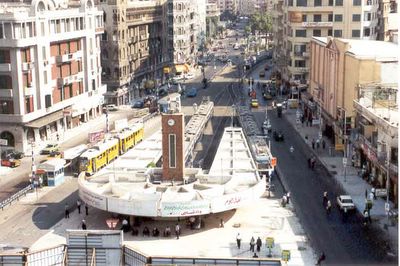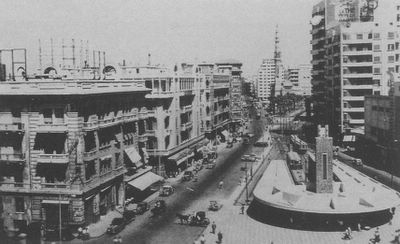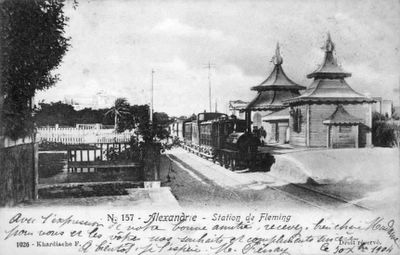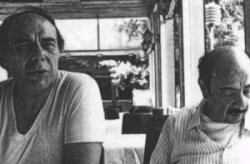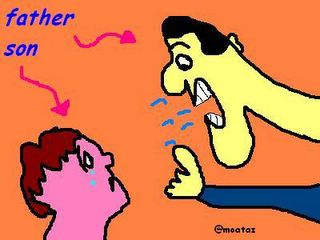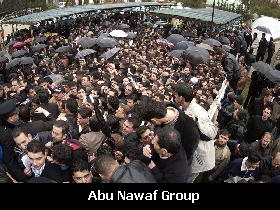

The pictures of
NORMAN ROCKWELL(1894-1978) were recognized and loved by almost everybody in America. The cover of The Saturday Evening Post was his showcase for over forty years, giving him an audience larger than that of any other artist in history. Over the years he depicted there a unique collection of Americana, a series of vignettes of remarkable warmth and humor. In addition, he painted a great number of
pictures for story illustrations, advertising campaigns, posters, calendars, and books.
As his personal contribution during World War II, Rockwell painted the famous "Four Freedoms" posters, symbolizing for millions the war aims as described by President Franklin Roosevelt. One version of his "Freedom of Speech" painting is in the collection of the Metropolitan Museum of Art.
Rockwell left high school to attend classes at the National Academy of Design and later studied under Thomas Fogarty and George Bridgman at the Art Students League in New York. His early illustrations were done for St. Nicholas magazine and other juvenille publications. He sold his first cover painting to the Post in 1916 and ended up doing over 300 more. Presidents Eisenhower, Kennedy, and Johnson sat for him for portraits, and he painted other world figures, including Nassar of Egypt and Nehru of India.
In 1957 the United States Chamber of Commerce in Washington cited him as a Great Living American, saying that..."Through the magic of your talent, the folks next door - their gentle sorrows, their modest joys - have enriched our own lives and given us new insight into our countrymen."
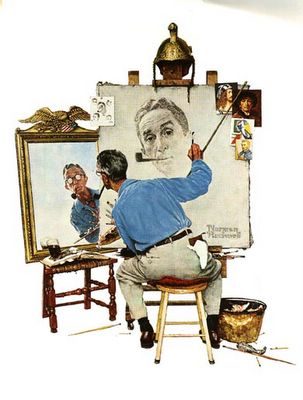
This self-portrait gives a glimpse into Rockwell's life: a glass of Coca-Cola, a dog-eared book and a metal bucket with a bit of smoke. This last detail probably refers to Norman Rockwell's Vermont studio fire in 1943. Describing this fire with sketches in his autobiography, Rockwell said, "In a way the fire was a good thing. It cleaned out the cobwebs."
=====================================
samples:
1-The return of the scout ..
A very expressing and highly detailed image.. one of my favourites
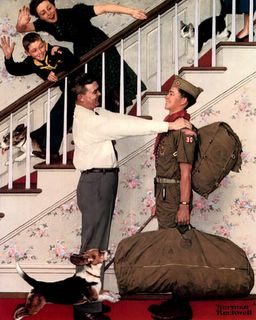
======================================
2-The roadblock..
Just look to the tiny details this legend has collected in his work.. the truck, the people watching out from their balconies , the young lady with bicycles, the boys who stopped playing , the width of the street ,the guy climbing up a window(( where to??)) and finally the dog that caused all that mess.. this painting always made me think.. how could the man get off his truck??? so unique hh?

====================================
3-Going & coming
what can i say abt it. it simply carries me to a world of imagination.. look to the facial expressions of all members of this family.. before and after the trip... above :on going we see happy mother and father , kids full of energy, even the dog feels high. on coming they all are tired .. the little girl doesnt have the enough energy to blow her gum baloon. u can tell exactly where they went .. and what they've done their.. notice the constant expresiion on grandma's face... tell u more abt her personality.. the light changes around them..(( the begining and the end of the day) etc etc etc .. just wow

===================================
4- The dugout
A disappointing new player leaves his effect on his coaches faces..and the reactions of the audience.. also a great use of light and shadow...

==============================
5-The dugout
wow, if I wasn't sure this is just a plain painting. I'd say it's a photographic piece of work.. wow wow wow


====================================
The four freedomsIn 1942, President Franklin D. Roosevelt gave a speech about the "Four Freedoms" everyone should have: freedom from fear, freedom from want, freedom of speech, and freedom of worship. Norman Rockwell painted these Four Freedoms.
These paintings succeeded in raising more than $133 million in war-bond purchases. Norman Rockwell said the Four Freedoms were "serious paintings which sucked the energy right out of me, leaving me dazed and thoroughly weary."
The last of the four ideas to be done, Freedom from Fear, was very close to how Rockwell thought it would look. To get the details just right, he asked the local newspaper to make up a "prop" edition with the bombing headline. This scene, which the illustrator began as a magazine cover in 1940, shows a family in America while London was being bombed. Rockwell's Vermont neighbors posed for this picture, and the "father" above appears in all four Four Freedoms paintings.
========================================
freedom of worship

===========================
Knowing that this picture was done when the world was at war gives us clues to the kinds of discussions a family might have. What do you think the family talked about earlier in the evening? Do you think the children were at all fearful? What kinds of questions do you think they might have had for their parents? What emotions do you think the parents were feeling?
Freedom from fear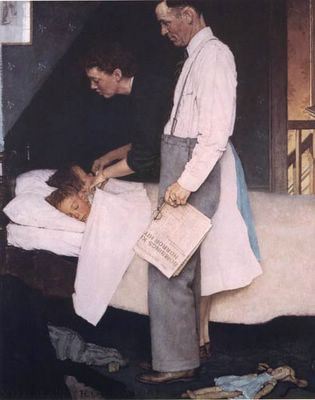
================================
freedom of speech
=================================
freedom from want




